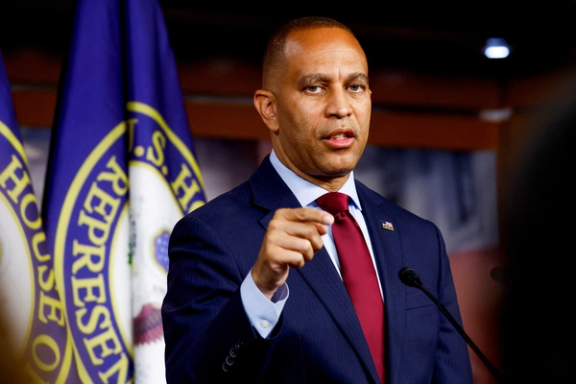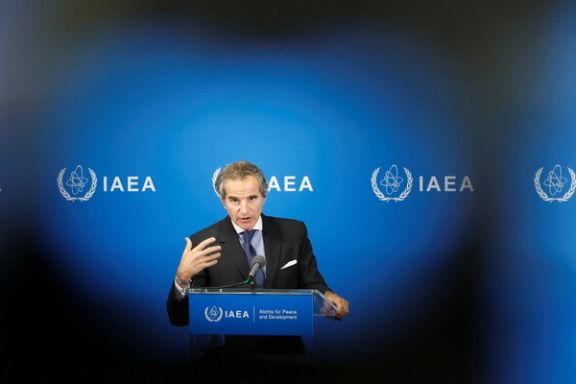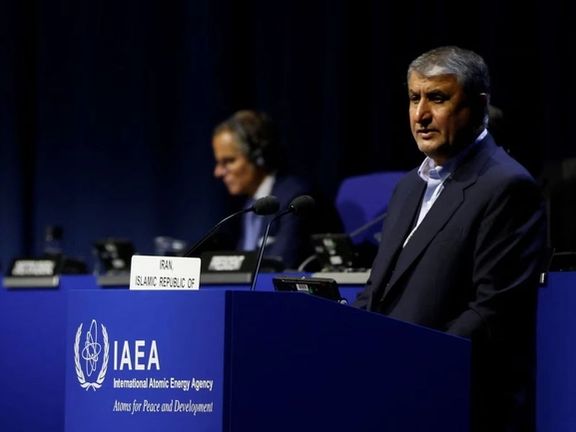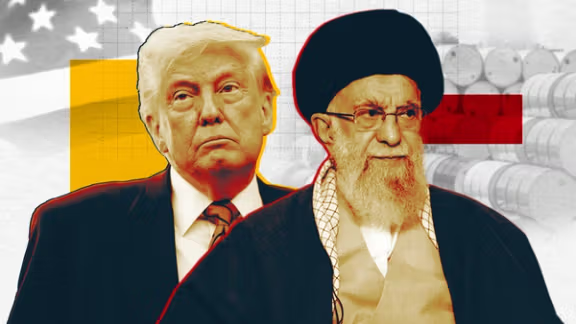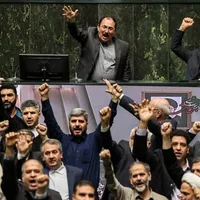During his weekly press conference, Foreign Ministry spokesman Esmail Baghaei also reaffirmed Tehran’s right to uranium enrichment and warned of potential retaliatory steps if the West continues what it described as politicized pressure tactics.
“The American proposal does not reflect the outcomes of previous negotiations and cannot be considered a product of mutual understanding... It lacks the give-and-take required in a bilateral process,” Baghaei said.
“Any proposal that fails to consider the rights and interests of the Iranian nation—whether in peaceful nuclear energy including enrichment, or in providing effective guarantees for lifting cruel sanctions—is unacceptable to us ...
“We recommend that the American side seize this opportunity and review it seriously, as accepting it would benefit the United States.”
Earlier in the day, Tasnim news agency, affiliated with the Revolutionary Guards, reported that Iran is expected to deliver a formal written response to the US proposal within the next two days.
Warning over IAEA resolution
Addressing the possibility of a resolution against Iran at the IAEA Board of Governors meeting which started on Monday, Baghaei accused the agency of yielding to political pressure from the US and the three European countries known as the E3, the United Kingdom, France and Germany.
In March, the E3 issued a joint statement expressing concerns over Iran's nuclear activities, including unprecedented enrichment levels, advanced centrifuge deployment, lack of transparency and threats to non-proliferation.
“The Islamic Republic of Iran has always based its cooperation with the International Atomic Energy Agency on its commitments under the NPT and the Comprehensive Safeguards Agreement,” Baghaei said.
“Unfortunately, the Agency, under the influence of political pressure, drafted what it called a ‘comprehensive report,’ which European countries then exploited to push for a resolution.”
He warned that “a confrontational response will certainly not lead to more cooperation.” Iran, he added, has prepared a series of steps and measures and will act in coordination with the Atomic Energy Organization of Iran and relevant bodies.
“No country has the right to dictate terms to Iran regarding its enrichment rights or issue licenses in this regard,” Baghai said, affirming that uranium enrichment is “an inseparable part of Iran’s indigenous nuclear fuel cycle and scientific identity.”
Referring to Article 4 of the Non-Proliferation Treaty, he said, “This right is explicitly recognized for all signatory countries and is non-negotiable.”
The latest IAEA report, leaked to Western media late last month, concluded that Iran now possesses over 400 kg of 60%-enriched uranium—enough, if further enriched, to build approximately 10 nuclear weapons.
The report also cited ongoing Iranian non-cooperation on safeguards and expressed serious concern over the country’s continued enrichment at levels with no civilian justification.
No sanctions relief so far, Iran says
Baghaei dismissed recent reports that sanctions on Iran had been lifted. “As I said last week, the claim that sanctions have been halted is simply not true. In fact, a new set of sanctions was imposed just this week. This shows once again that the US is not serious.”
He criticized the “inconsistent and contradictory behavior of the United States, which simultaneously claims to seek dialogue while imposing fresh sanctions,” adding that such actions only increase Iran’s mistrust.
Iran’s nuclear posture
When asked about international concerns over a possible shift in Iran’s nuclear posture, Baghaei said that the country’s nuclear program is entirely peaceful.
“Even the IAEA’s latest report, despite its politically-motivated framing, does not mention any deviation from peaceful objectives,” he added.
No deal without sanctions relief
On whether Iran had addressed sanctions in the five previous rounds of talks, Baghaei said, “We have consistently emphasized the necessity of lifting oppressive sanctions in both the media and negotiations. How can an agreement be imagined without addressing this fundamental and legitimate demand?”
Sanctions since 2018 when US President Donald Trump pulled out of the JCPOA nuclear deal, have since crippled Iran's economy with inflation at record highs since the founding of the Islamic Republic.
“The main demand of the Iranian nation—besides preserving nuclear achievements—is the effective removal of sanctions. If a proposal ignores these two core principles, it not only lacks seriousness but is also unacceptable to us," he added.
Snapback mechanism and security council
Baghai also downplayed the likelihood of the so-called “snapback” mechanism being triggered at the UN Security Council as the October deadline draws closer and the threat of the reimposition of sanctions looming.
“There is no legal basis or justification for the continued presence of Iran’s nuclear issue on the Security Council’s agenda after October 2025. Any move to the contrary is purely political.”
He added that the US and its allies had previously taken Iran’s file to the Security Council in 2006 “without any such mechanism, using fabricated pretexts.”
Iran accuses Europe of abandoning diplomacy
Baghaei said while efforts have been underway by Tehran, diplomatic dialogue with Europe is failing: “European opposition cannot be a motivation for cooperation. While we engaged in dialogue and held several rounds of talks, unfortunately the European side neither offered constructive proposals nor remained committed to the diplomatic path.”
Referring to the IAEA resolution being prepared by European countries and supported by the US, he warned, “All of these parties will be responsible for the consequences. Sadly, this behavior reflects a continuing confrontational and uncooperative approach.”
Addressing Trump’s recent executive order restricting entry to citizens from 12 countries including Iran, Baghai said it was another move to drive a wedge between the two nations, amid the sensitive nuclear talks.
“The US decision is based on a discriminatory and racist outlook, and is entirely rejected from both human rights and moral perspectives," he said.
“For us Iranians, this action is yet another clear sign of the depth of hostility the American government harbors toward the Iranian people. It violates fundamental principles of equality and justice, and the international community must respond decisively.”
